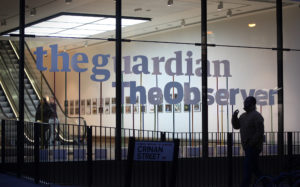In the rarefied world of scientific publishing, few names strike quite the same chord as The Lancet. Across the globe, the journal is associated with scientific rigour and professional prestige. In the field of science itself, it is a gilded gateway leading to coveted tenure-track professorships and jealously guarded academic chairs. Today, The Lancet marks 200 years of continuous publication, a milestone the publication is making much of. On its glossy anniversary website, it has released a timeline of its greatest ever discoveries — with its less respectable moments conspicuously absent.
While two centuries would be a solemn milestone for any publication, for The Lancet it’s much more than that. After the turbulence of the Covid pandemic, the journal is not only more celebrated than ever but also more embattled. It faces the fallout of a major Covid retraction and accusations of malfeasance by prominent figures.
Here, however, The Lancet is in its element. The journal’s long-reigning editor-in-chief, Richard Horton, a kind of Anna Wintour figure of science publishing, seems more sanguine than ever as he advances political and even ideological positions in the name of science with his characteristic media savvy and a constant refusal to tone it down — no matter how unruly it gets. While some may claim that this is a departure from the journal’s staid, grey roots, they’d be wrong. For The Lancet was forged by controversy.
Conceived by a fiery Victorian physician and rights campaigner named Thomas Wakley, The Lancet came into the world in a fit of protest. Born in 1795 in Devonshire to a family of yeoman farmers with 11 children, Wakley had in his early twenties married the daughter of a wealthy businessman and hospital governor who set him up with a London medical practice. Ensconced in a 15-room house at 5 Argyll Street, Wakley had every reason to believe his success imminent until one evening in 1820 when an unexpected knock on his door was followed by a brutal assault. The assailants believed (probably baselessly) that Wakley had played a role in the execution of members of the Cato Street Conspiracy, a radical plot to murder the entire cabinet and the prime minister. Wakley survived, but his house and practice were burned to the ground.
Part of the founding myth of The Lancet was that it was born from Wakley’s outrage and desperation. His insurance company refused to cover damages from the fire, leading to Wakley’s first confrontation with institutional injustice. He sued — and won. His practice had been ruined but a new career as a journalist rose from its ashes. The episode thrust Wakley’s name into the limelight and, according to a review of his 500-page 1897 biography, earned him “a reputation as a man who would fight strenuously against an injustice”.
With The Lancet, Wakley set out to do something different. While the existing journals were the elite products of an elitist medical system, The Lancet was “founded by a marginal medical man with no reputation and a left-of-centre agenda [within] a conservative profession”, according to a 1998 history published in (none other than) The Lancet. But The Lancet was far more than an ideological and class reaction to medical orthodoxy. It was a stylistic mould-breaking experiment driven by a commitment to “entertain, instruct, and reform”. Its early editions featured chess problems, theatre reviews, and even gossip. “Our Columns will not be restricted to Medical Intelligence, but on the contrary, we shall be indefatigable in our exertions to render ‘THE LANCET’ a complete Chronicle of current Literature,” Wakley wrote in the preface to the journal’s inaugural issue.
The literary elements were quickly dropped but a more potent approach was taken up, one that construed medicine itself as an inherently — and even primarily — political endeavour. “It is widely recognised that, from its foundation in 1823, The Lancet functioned as the principal mouthpiece for the disadvantaged medical classes,” historian of medicine Michael Brown wrote in a 2014 academic article. “It is likewise recognised that, as its editor, Thomas Wakley occupied a uniquely powerful position from which to shape the radical medical political agenda.”
For Wakley, medicine was the arena of a Manichean struggle between good and evil. This played out in the pages of The Lancet as a grand melodrama, with Wakley’s pen supplying a slashing lexicon entirely out of character for a journal at that time. It was a rhetoric of “monsters, spies, and villains, of fetid dungeons and the chains of bondage”, the forces of darkness and evil embodied by the British medical establishment — in particular, surgery — that preyed on the snowy innocence of its eternal victims, the poor and disadvantaged.
In an 1828 editorial, Wakley raged with characteristic hyperbole that: “The Hydra of medical corruption is at its last gasp, and one well-directed blow may rid us of a monster, whose noxious influence has retarded the progress of science, disgraced the character of British surgery, and rendered the profession an object of public scorn.” He was talking about the Royal College of Surgeons. Wakley wrote in the same editorial that while the “tyranny” of the medical establishment was strong “we have possession of the field, and THE LANCET IS UNBROKEN”. In this sense, the publication’s name referred not only to an instrument that could pierce infected skin, but also to the pointed spear used by medieval cavalry. Wakley was the self-styled white knight of public health. The Lancet was his weapon.
Though it was draped in the language of melodrama, Wakley had in hand a remarkably effective formula for success. His target was a corrupt system, but abstractions rarely make for good targets. Wakley, ever the effective polemicist, understood this. He directed his most ferocious attacks on individuals. In the most notorious case, The Lancet covered a lithotomy (the removal of a kidney stone) from a patient by a surgeon who was the untalented nephew of a luminary figure in British medicine. The surgery was a debacle. The procedure (inserting forceps into the male patient’s urethra to remove the stone — with no anaesthesia) should have taken 10 minutes. It took an hour. The patient, who begged the surgeon to stop, died shortly after.
It wasn’t the facts that got the journal into trouble, but the florid, withering tone it employed. Casting the procedure as a literal tragedy, the article theatrically divided the events into “Act I” and “Act II”. Bransby Cooper, the surgeon who performed the botched lithotomy, sued Wakley for libel and won (though the damages granted by the court were considerably less than what he’d claimed). While The Lancet’s coverage of Cooper’s surgery was deemed libellous, the journal had found a template for how to not simply address medical incompetence and corruption, but to catapult itself to further fame as a crusader for justice. As Brown put it: “By deliberately publishing libellous material and thus positively soliciting prosecutions, Wakley was able to locate his specifically medical campaign within the established traditions of democratic political reform.”
One of the many remarkable things about The Lancet is that it has managed to poignantly maintain its character for two centuries. In the past three years, the journal has again and again found itself at the centre of the most heated Covid controversies and scandals. The most prominent began in the first week of June 2020, less than three months after the WHO declared a pandemic, when the journal was forced to retract a paper on hydroxychloroquine — the anti-malarial drug promoted by Trump as a Covid cure — because it was based on fabricated data.
On its own, a retraction by a journal as prestigious as The Lancet would be noteworthy. But this wasn’t just any paper. For the preceding two months, the media had leaned on The Lancet’s paper, authored by a Harvard Medical School cardiologist, to claim that the Trump-touted drug was not just ineffective in treating Covid, but also dangerous. It became a weapon to attack the President, furthering the notion widespread in the media that no matter what Trump said, the opposite was likely true.
Nevertheless, it was in the context of not just The Lancet’s hydroxychloroquine retraction but no fewer than seven other Covid-related retractions that the journal clinched the top impact factor — science publishing’s measure of influence — in its category last year, doubling its 2021 score. “I think what you saw with The Lancet is they were clearly chasing big splashy papers that would get a lot of attention,” said Ivan Oransky, the co-founder of Retraction Watch and editor of the journal Spectrum. In this, he says, the journal is no outlier. “The Lancet is like a more public version of what happens at every journal. Everybody’s chasing impact factor, everybody’s chasing particular papers.”
In the wake of the retraction, The Lancet’s editor Richard Horton mounted a very different defence. After acknowledging the paper to be a “monumental fraud”, he averred that the peer-review system that forms the backbone of science publishing isn’t equipped to detect this kind of fraud at all. “If you have an author who deliberately tries to mislead, it’s surprisingly easy for them to do so,” he told The New York Times.
This, however, raises the question of what the science journal is there to do. For Horton, the answer isn’t merely to ensure the integrity of scientific papers. Rather, it’s an explicitly political mission that can be traced directly back to his predecessor, Thomas Wakley: using science to accomplish the objectives of radical politics.
Like Wakley, Horton has created a field-defying public profile by standing on a mountain of accumulated controversy. This includes his scathing open letter to Gaza on Israel’s treatment of Palestinians, which brought accusations of antisemitism (followed by an apology); The Lancet labelling women as “bodies with vaginas” (followed by an apology); and Horton channelling the ghost of Wakley by attacking the Royal Society as a “shrill and superficial cheerleader” (followed by a semi-apology). There were also accusations that the journal vastly overestimated the number of deaths caused by the war in Iraq, drawing the ire of Christopher Hitchens, who called the study in question “moral idiocy“. And, more recently, Horton has supported Extinction Rebellion, chiding Britain’s scientific community for doing too little for “the struggle for climate justice”.
Far from being a black mark against the publication, each new episode presents Horton with an opportunity to drive home the institutional ethos that has defined the journal for two centuries — namely, that science is, and ought to be, a vanguard for politics. “Some of the great advances, like the 19th-century sanitary movement and the birth of the NHS, were not technical accomplishments but political struggles,” Horton told the Financial Times. “The idea you can strip out politics from medicine or health is historically ignorant. The medical establishment should be much more politicised, not less, in attacking issues like health inequalities and poor access to care.”
So successful has this strategy been that it was effective in navigating Horton through the mother of all science publishing scandals — the fraudulent paper published by Andrew Wakefield in The Lancet claiming a link between the MMR vaccine and autism. It took The Lancet an astonishing 12 years to fully retract it. By that point, the damage had been done, and vaccine-related conspiracy theories had taken root.
Horton’s response to the scandal was to publish a “5,000-word avalanche of denials”, according to Brian Deer, the Sunday Times journalist who broke the story. Even more disturbingly, Horton looked to Wakefield and a number of co-authors of the MMR paper to lead the initial investigation into the fraud. “In short,” Deer wrote in the BMJ, “the accused were investigating themselves — an investigation that Horton would say ‘cleared Wakefield’.”
And in the most quintessentially Lancet fashion, the scandal did nothing to damage Horton. Far from it. In the midst of the scandal, he was awarded the Deans Medal by Johns Hopkins University in 2009. A decade later, he received the Roux Prize. Between those two honours, he received another: in 2015, he was the recipient of the “Chinese Government Friendship” award granted by the CCP. To mark the occasion, Horton offered Lancet readers soaring rhetoric on how China’s “emphasis on friendship, and the free flow of critical ideas that such friendship encourages, might offer lessons to other nations about how scientific co-operation can accelerate social and political change”.
In the years that followed, Horton would be vocal in his defence of China. In 2016, he attended a symposium organised by the Chinese government body that ran the country’s “Thousand Talents” programme, which, according to The New York Times, “lured” Western scientists into collaboration with China using “lavish funds” that sometimes amounted to quadruple a scientist’s official salary.
There is no evidence to suggest that Horton personally took any money from China. Nevertheless, he became one of the most high-profile voices to praise China for its handling of the pandemic — not only in the Western media but in China too. In a May 2020 interview with China Central Television, he said: “I think we have a great deal to thank China for how it has handled the outbreak in Wuhan.”
Horton also claimed during the interview that questions about whether the virus might have originated from a lab in Wuhan amounted to “disinformation” based on “conspiracy theories”. This narrative would go on to form the basis of the first major publication on the question of Covid’s origin. Published in mid-February 2020, “The Lancet Letter” — as it came to be known — made baseless claims that the lab-leak hypothesis was a racially motivated conspiracy theory. It was later revealed that the man who organised the letter, Peter Daszak, funded the lab in Wuhan in question — and that four of the scientists who signed the letter were affiliated with Daszak’s NGO. More astonishingly, according to The Daily Mail, Horton admitted to being aware of the conflict of interest. Nevertheless, The Lancet waited almost a year and a half to formally disclose the conflicts.
None of this would stop, or even put a dent in, The Lancet’s ceaseless march to prestige and power. This likely has to do with the fact that the journal has built its reputation on a foundation of public scandal and melodrama. It was founded not on the principle of scientific rigour — but as a basis for radical political activism. And it remains an activist publication to this day. If he were alive now, Thomas Wakley would likely be proud of Horton, his intellectual heir, who has remained strikingly true to the founder’s vision. While the formula has brought acclaim for Horton and for the journal, the question for the rest of us is this: who really pays the price for The Lancet’s success?
Disclaimer
Some of the posts we share are controversial and we do not necessarily agree with them in the whole extend. Sometimes we agree with the content or part of it but we do not agree with the narration or language. Nevertheless we find them somehow interesting, valuable and/or informative or we share them, because we strongly believe in freedom of speech, free press and journalism. We strongly encourage you to have a critical approach to all the content, do your own research and analysis to build your own opinion.
We would be glad to have your feedback.
Source: UnHerd Read the original article here: https://unherd.com/






